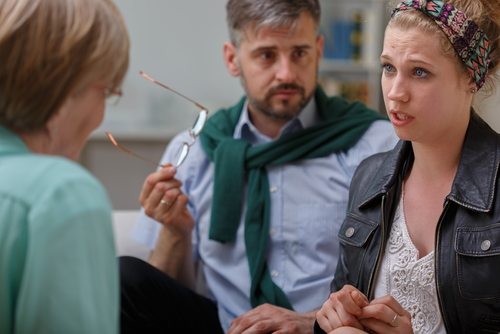Like everything else, addiction must be put into context. Addiction does not happen in isolation. It is important to learn the context in which it has developed. How did the individual with an addiction become addicted? Was it due to their socio-economic class? Family circumstances like divorce? Peer pressure?
Addiction and Family
No man is an island. An individual’s substance abuse problem does not only affect them, it also affects people around them, most notably their family. The family dynamics that result from that situation can lead to certain forms of dysfunction. This dysfunction must be treated to treat the addiction successfully and for any real chance at a lasting recovery.
There are some shared patterns of disorder across families who are impacted by an individual’s substance abuse problem. These include the disruption of:
- Parent-Child attachments.
- Family roles.
- Social life.
- Communication.
- Rituals and routines.
- Finances
The disruptions typically shape the home environment, which can develop negative characteristics like family members keeping secrets, conflict, violence, abuse and loss.
It is important for the family as a whole to be well informed about not just the addiction but also the family dynamics and how they affect the whole family system. Only then will they be better prepared to seek help.
Family Focused Treatment
Because the entire family is affected due to the addiction of one individual, a program to treat addiction must include the family. Family focused treatment is built on the premise that addiction is a family problem rather than just an individual problem and thus treatment should also include the family.
A usual course of treatment would include the individual with the addiction and their family members meeting with a therapist and explaining family relationships and dynamics. This leads to the family examining their own history in detail and laying a foundation of understanding that provides the direction for the treatment. The individual is given the opportunity to explore how their addiction has impacted the family, and the family is allowed to express their feelings about the addiction.
Of course, the individual with an addiction should also participate in traditional one on one therapy, group therapy and counseling. Not to forget relapse prevention therapy, which is an essential part of recovery.
There have been a number of studies which have underlined the importance of the family’s involvement in the recovery process. It actually boosts recovery outcomes by increasing engagement rates for entry into treatment and decreases dropout rates during treatment, all leading to better long term outcomes for recovery.
Are you looking for family therapy options? We have the resources for you. Call The Villa to find out how we can help.

